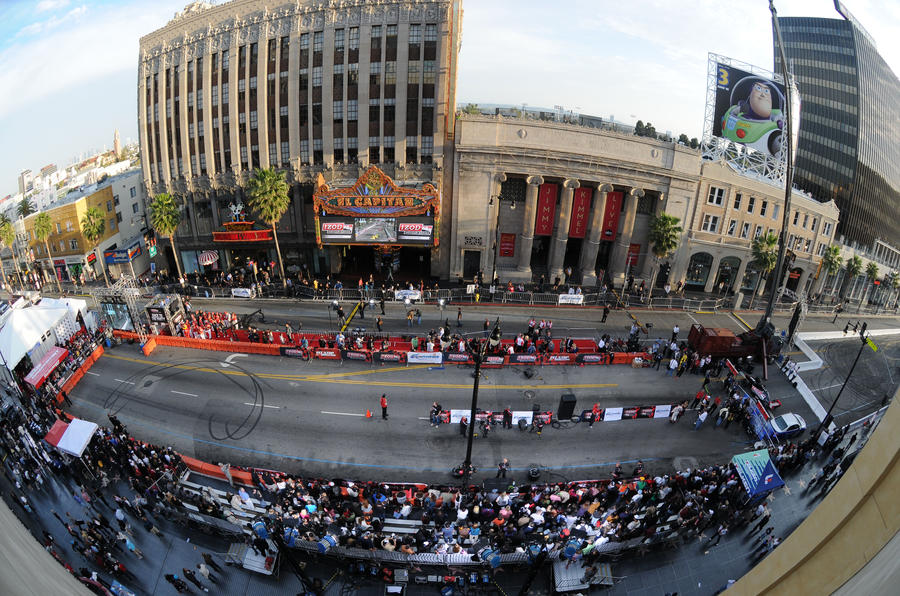Los Angeles is often referred to as America's most car-mad city, which is why the Los Angeles motor show, which opens today, is one of the major events on this continent.
The mix of brands you see on the roads here is a match for the variety we have in Britain, whereas in some parts of the US you can drive for many miles without seeing a BMW or Mercedes.
Los Angeles has been passionate about all things four wheeled since the dawn of the automobile. Despite the increasingly stringent emissions restrictions that are being championed by the state of California, making cars go quickly still plays a major part in LA's motoring history.
For the next couple of days we're staying in West Hollywood, and I was intrigued to learn that our hotel is only a mile or so away from the site of the former Los Angeles Motor Speedway.
Nowadays a largely forgotten footnote in motor racing history, the oval track on Wilshere Boulevard was for a brief time a state-of-the-art venue that almost matched the mighty Indianapolis Motor Speedway.
The track – bankrolled by an organisation called the Beverly Hills Speedway Syndicate – was built at lavish cost on the site of a lima bean plantation.
Unlike the bricks of Indy, however, Los Angeles Motor Speedway was a 'board oval', made from hundreds of thousands of long pieces of 2x4 timber nailed onto a more substantial wooden frame to make a banked 1.25-mile track.
The car racers who competed there must have been one sandwich short of a picnic, but the motorcycle riders who risked comprehensive splinter injuries must have been something else altogether…
In fact the track, also known as Beverly Hills Speedway, wasn't the first board oval in the City of Angels. That honour goes to Los Angeles Motordrome out by the coast at Playa del Rey, a circuit that was active from 1910 to 1912, when it was damaged in a fire.
Los Angeles Motor Speedway opened in 1919, and crowds of up to 85,000 fans flocked to enjoy the action. Many drivers who found fame in the Indianapolis 500 also raced at Los Angeles and other board tracks that quickly sprung up in the USA's major population areas.
Among them was Gaston Chevrolet, the brother Louis Chevrolet, founder of the eponymous car company. Unfortunately, Gaston, having won at Indy in 1920, lost his life in an accident at Los Angeles Motor Speedway later the same year.






Add your comment